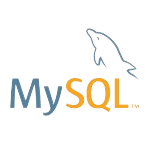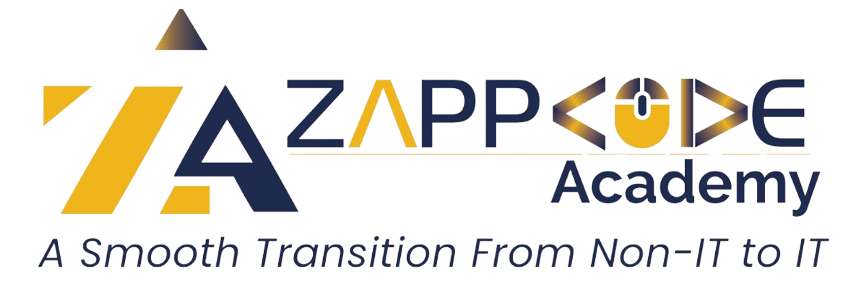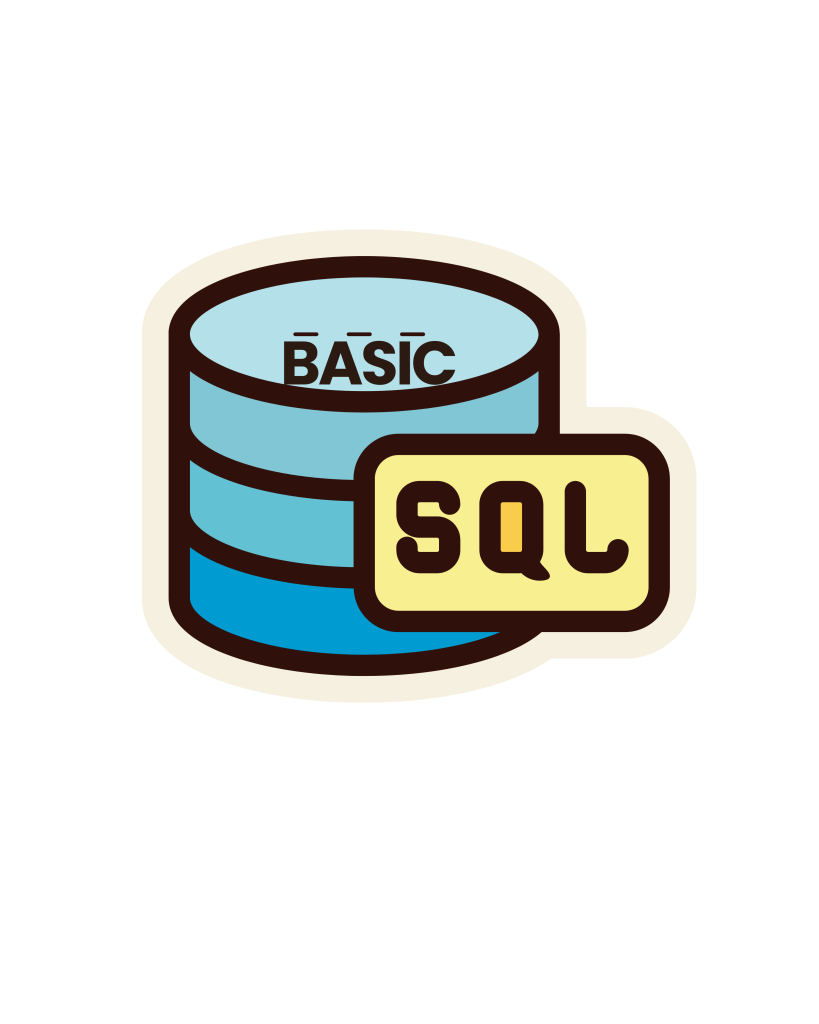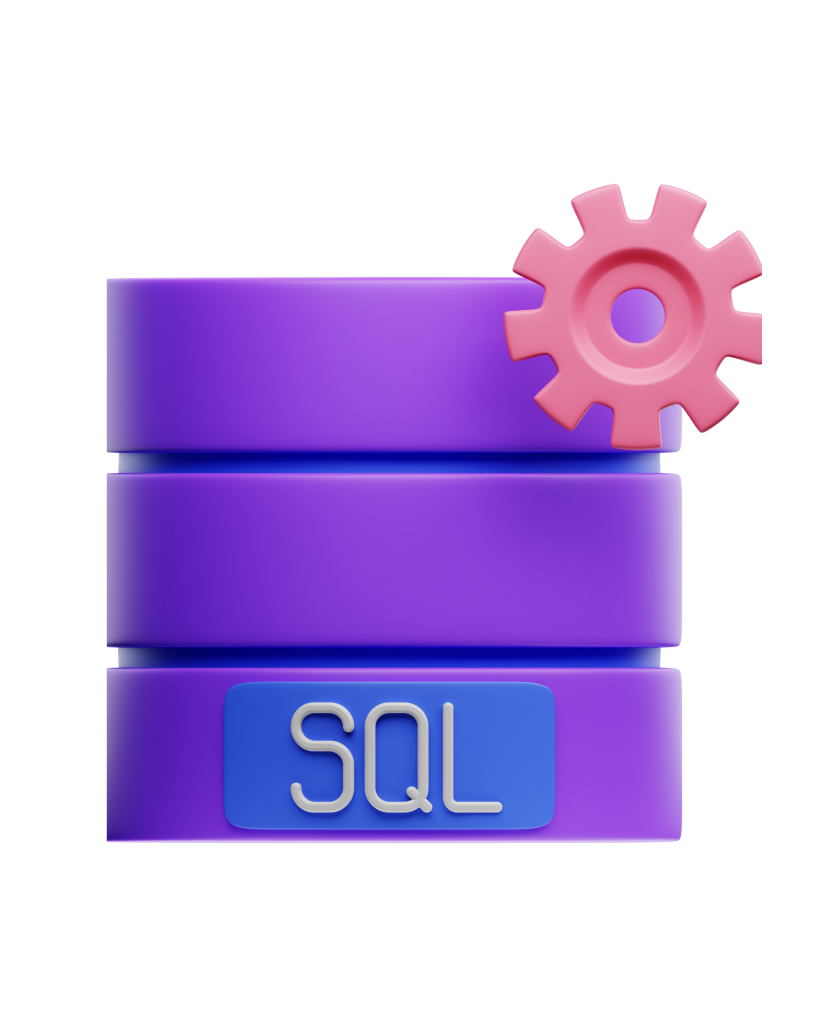Enroll Now
SQL Database
SQL database training helps you apply what you’ve learned to real-world applications with hands-on practice and practical insights.
Download
- Expert Trainer
- Affordable Fees
- Placement Opportunities
- Hands on Training
- Flexible Timings
- Industry Based Training
Attend Free Demo
Fill the details and we will call you for further guidance
SQL Database Course By Zappcode Academy
In the contemporary data-oriented environment, resourceful processing and analysis of data are essential productivity factors for businesses of all dimensions. Structured Query Language i.e. SQL database course can help you establish a strong basis that will give you the power to find the data hidden in the databases, discover critical information, and make effective decisions.
At Zappcode Academy, you are taught everything you need to know about the basic concepts that are important to master when working with relational databases in a complete SQL database course.
In this SQL database course, you will be comprehended by breaking it down to the ground concepts. There you’ll get a clear understanding of database structures, data types, and how to manipulate the databases using SQL queries.
Zappcode Academy takes you beyond the syntax but they teach you how to use magic words like SELECT, FILTER, SUM, COUNT, and ORDER BY. To this end, the discipline requires you to learn to perform fast and accurate searches for particular records under this SQL database course.
In this SQL database course curriculum, you will keep on diving into more sophisticated SQL topics. Gain the ability to use joins to mix data from different tables in an efficient manner, the core requirement for conducting complex data analysis. The class additionally touches base on functions, which enables you to procure the data within SQL queries and take your investigations even further.
Zappcode Academy not only imparts knowledge of the theory o]under this SQL database course; it also includes the application part. With practical exercises and real-life projects, you will be exposed to practical knowledge. This approach embeds the SQL concepts that you have learned so that you can start using them practically in your daily work. But as you take on SQL projects throughout the training process, you’ll be compiling a portfolio of projects that will showcase your SQL skills and make you a stronger candidate for all data-related job opportunities.
In addition, Zappcode Academy holds the awareness of the need to keep its study content up-to-date on a high level. The course contents of this SQL database course always look for the latest trends in the SQL database field and apply best practices too. Here you will be able to not only learn basic SQL functions but also acquire exceptional industry insights which make you a highly demanded professional in the market.
Highlights of Zappcode Academy
Limited Students Batch
Personalised Attention
Highly Qualified Teachers
Flexible Batch Timings
Interactive Learning
Live Projects
Career Support
Job Oriented Training
Why SQL database in Zappkode?
Build a Solid Foundation
Gain a comprehensive understanding of core digital marketing courses with concepts like SEO (Search Engine Optimization), SEM (Search Engine Marketing), social media marketing, content marketing, email marketing, and analytics.
Develop Practical Skills
Learn through hands-on exercises and case studies, applying your knowledge to real-world scenarios. Many courses offer opportunities to build a digital marketing portfolio – a valuable asset when searching for jobs or freelance opportunities.
Boost Your Employability
New-age digital skills are highly sought after by businesses of all sizes. Having a digital marketing course on your resume demonstrates your understanding of the field and makes you a more attractive candidate.
Increase your Business Acumen
Whether you’re an entrepreneur or aspiring to manage marketing efforts, a digital marketing course can provide valuable insights into customer behavior, online brand building, and driving conversions.
Get 100% Job Assistance by enrolling in Certified SQL Database Course
Job Assistance
30+ Companies Tie-ups
Enroll Now
Placement Initiative for our Students

Zappcode Academy's Job Assistance Program
Equips students with the skills and confidence to succeed in SQL interviews. They provide Interview preparation Guidance on interview techniques, common questions, and how to showcase your digital marketing knowledge through a comprehensive SQL Database Course.
- Assured Training and Placement
- Placement Guidance
- Resume Building
- Mock interviews
- Drive Exams
- Provide Internship in Zappkode Solutions
Attend Free Demo
Fill the details and we will call you for further guidance
Our Students Placed and Working with Companies












ENQUIRY FOR SQL COURSE FEES
Enroll Now
Master SQL Tools & Technologies










SQL Course Curriculam
Our Curriculum Program Covers Basic To Advance Level Content on SQL
Understanding the role of databases in data storage and management.
Distinguishing between different database types (relational, NoSQL).
Introduction to the concept of Structured Query Language (SQL).
Understanding the relational database model (tables, rows, columns).
Defining data types (text, numbers, dates) for accurate data storage.
Exploring the concept of primary keys and their importance for data integrity.
Mastering commands for creating tables (CREATE TABLE).
Specifying data types for each column (data definition).
Modifying existing tables using ALTER TABLE commands.
Learning how to delete tables (DROP TABLE) when necessary.
Inserting new data records into tables using INSERT INTO statements.
Updating existing data within tables using UPDATE commands.
Deleting unwanted records from tables using DELETE statements.
Understanding the concept of transactions (commit/rollback) for data consistency.
Crafting basic SELECT statements to retrieve specific data from tables.
Using filtering conditions (WHERE clause) to narrow down search results.
Employing logical operators (AND, OR, NOT) for complex filtering criteria.
Learning how to sort retrieved data using ORDER BY statements.
Understanding the concept of relationships between tables (foreign keys).
Performing INNER JOINs to combine data from multiple related tables.
Learning about LEFT JOINs and RIGHT JOINs for handling missing data scenarios.
Employing JOINs to create comprehensive data views.
Utilizing aggregation functions (SUM, AVERAGE, COUNT) for data summarization.
Using GROUP BY clauses to categorize and analyze data sets.
Mastering SUBQUERIES to embed nested queries within main queries.
Exploring the power of JOINs with aggregation functions for complex analysis.
Understanding the importance of data security in SQL databases.
Implementing user accounts and permissions for controlled data access (GRANT/REVOKE).
Leveraging data encryption to safeguard sensitive information.
Learning best practices for secure database management.
Understanding the role of a database administrator (DBA).
Exploring database backup and recovery procedures for data protection.
Learning basic database performance optimization techniques.
Introducing essential database maintenance tasks.
Applying your acquired SQL skills to a practical project.
Working on a project that utilizes joins, filtering, aggregations, and data manipulation.
Building a portfolio showcasing your SQL proficiency for potential employers.
Download Syllabus Broucher for more details
Download
Frequently Asked Questions
SQL database (Structured Query Language database) is one of the types of relational databases that stores information in a structured viewpoint in which the data is grouped in tables with rows and columns. SQL enables you to have direct interaction with the data, run queries to get specific information, or create any changes within the database.
SQL has been recognized as a most wanted skill that is required by a multitude of industries. Business analysts and data analysts, among other professionals, are becoming more data-driven with their access and insight requirements on data warehouses to drive data analytics. SQL enables you to tool through Big Data to reveal hidden insights, make reports, and make data-driven decisions.
SQL perhaps falls under the category of programming languages that are beginner-friendly, and as such its syntax is fairly easy to understand. The main ideas such as retrieving data by issuing SELECT queries and filtering information through WHERE clauses can mastered in a relatively short time. In the beginning, the Zappcode Academy lesson plan has a build-up structure that deals with the basics and later moves to advanced topics, simply introducing SQL.
Among the most widely used SQL commands, one can enlist SELECT, FROM, WHERE, JOIN, and ORDER BY. SELECT registers data in a table; you specify the table with FROM; WHERE allows you to filter data according to specific criteria; you use JOIN to unite data from several tables, and with ORDER BY you sort data according to the chosen column.
The combination of relational databases with a well-defined structure for storing data guarantees the exactness of the records and the elimination of the occurrence of multiple copies of information. SQL is used for the process of fast and easy work with the information within these databases. Data integration and collaboration is another feature of RDBMS which supports the sharing of data across numerous applications and users.
Inteview Questions
A relational database is a type of database which designed with the relation of tables, rows, and columns in a precise organized style. Every table is dedicated to a particular entity and columns contain certain account information. Tab headers or column headers define the attributes or the characters of those records. The creation of relationships between tables through keys is facilitated, which is the basis for querying and data structuring.
The SELECT command does the actual job of getting data from a table in SQL while performing various transformations. It emphasizes what columns you are supposed to enter (or all of them with an asterisk *) that you want to query. The WHERE clause works as a filter inside the SELECT statement to identify the conditions that any rows should meet for them to be a part of the output.
JOIN OPERATIONS joining data from several tables in a relational database. Joints vary in their character, this way. g. , INNER JOIN, LEFT JOIN) are been used according to the result. Joins play an important role when you need to analyze data point sets that are stored in different tables but still related to each other, say, for customer data together with the order history.
The primary key for each row within a table is a verifiable identifier. It removes the possibility of record duplication while it makes fast and easy the process of data retrieval and manipulation. Generally, the primary key consists of a single or a combination of columns that truly distinguish each record from one another in the table.
Data integrity is about the complete accuracy, and uniformity that the database consists of. Functionalities like data typing, constraining, and data normalization techniques support maintaining data integrity within the relational database structure. Such characteristics guarantee the data is always reliable and reflects the situation in the real world it targets.
Latest Blogs
How Small Businesses Grow Big Using Digital Marketing Strategies
In today’s digital-first world, small businesses no longer need huge...
Read MoreHow Python Teaches You to Think Like a Problem Solver, Not Just a Coder
When most people hear Python, they think of coding, web development,...
Read MoreWhy Data Analytics Is the Fastest Way to Get an IT Job
The IT industry is changing faster than ever. New technologies...
Read MoreWhy Full Stack Development Is the Most In-Demand Career Today
The world is growing more digital with each passing day....
Read More
























